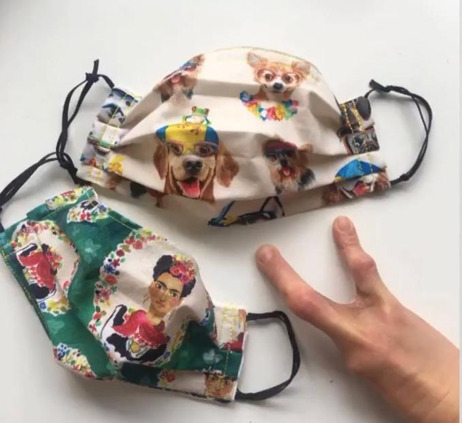Masks for Crips was a mutual aid project that centered the Chicago disability community. Alison Kopit and Chun-shan (Sandie) Yi began the project at the onset of the COVID-19 pandemic, and it ran from March 2020 through July 2020. Early in the pandemic, when personal protective equipment (PPE) was difficult to come by and the state was not caring for those most impacted by the pandemic—disabled people, essential workers, people living in congregate facilities, and unhoused people, to name a few—the project provided homemade masks to disabled people and their care teams in the Chicagoland area. Masks for Crips addressed an infrastructural gap and disability community need in an urgent way, and provided information about how to use and care for masks, as well as best practices for reducing risk surrounding COVID-19. The project was born through text message-based conversation in March 2020 as Alison and Sandie held space for each other by sending memes, texts, and support informally. From those moments of connection, they proceeded to expand outward and develop a mutual aid project that delivered about 300 masks, start to finish. The project brought together delivery and mask-making volunteers while serving as a means of connection and an expression of disabled care during an isolating time.
Articles by Alison Kopit
Alison Kopit is a queer and disabled performance artist and access worker. She holds an MS and PhD in Disability Studies from the University of Illinois at Chicago. She has served as an artist in residence in Dance/NYC's Disability. Dance. Artistry residency program and an artist with UCLA's 2022 Dancing Disability Lab. She works as a project leader with the Museum, Arts and Culture Access Consortium (MAC) and also works as an independent access auditor, consultant, and dramaturg to cultural workers committed to deepening an intersectional, sustainable access practice. Her commitment to disability justice, as well as mutual aid, arts organizing, direct care, and collaborative art-making are throughlines in her work and life. She believes that collective access has the potential to transform communities, social movements, and our relationships to each other.
